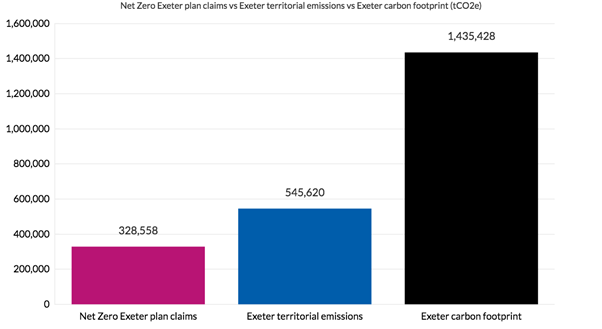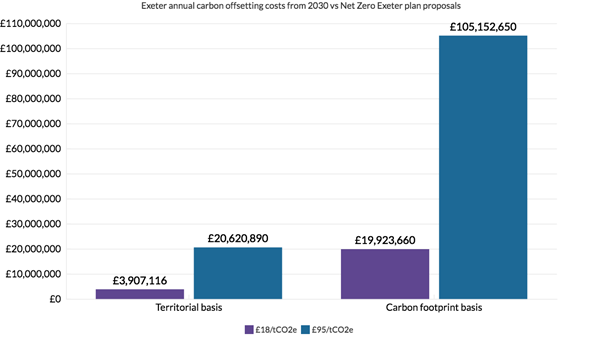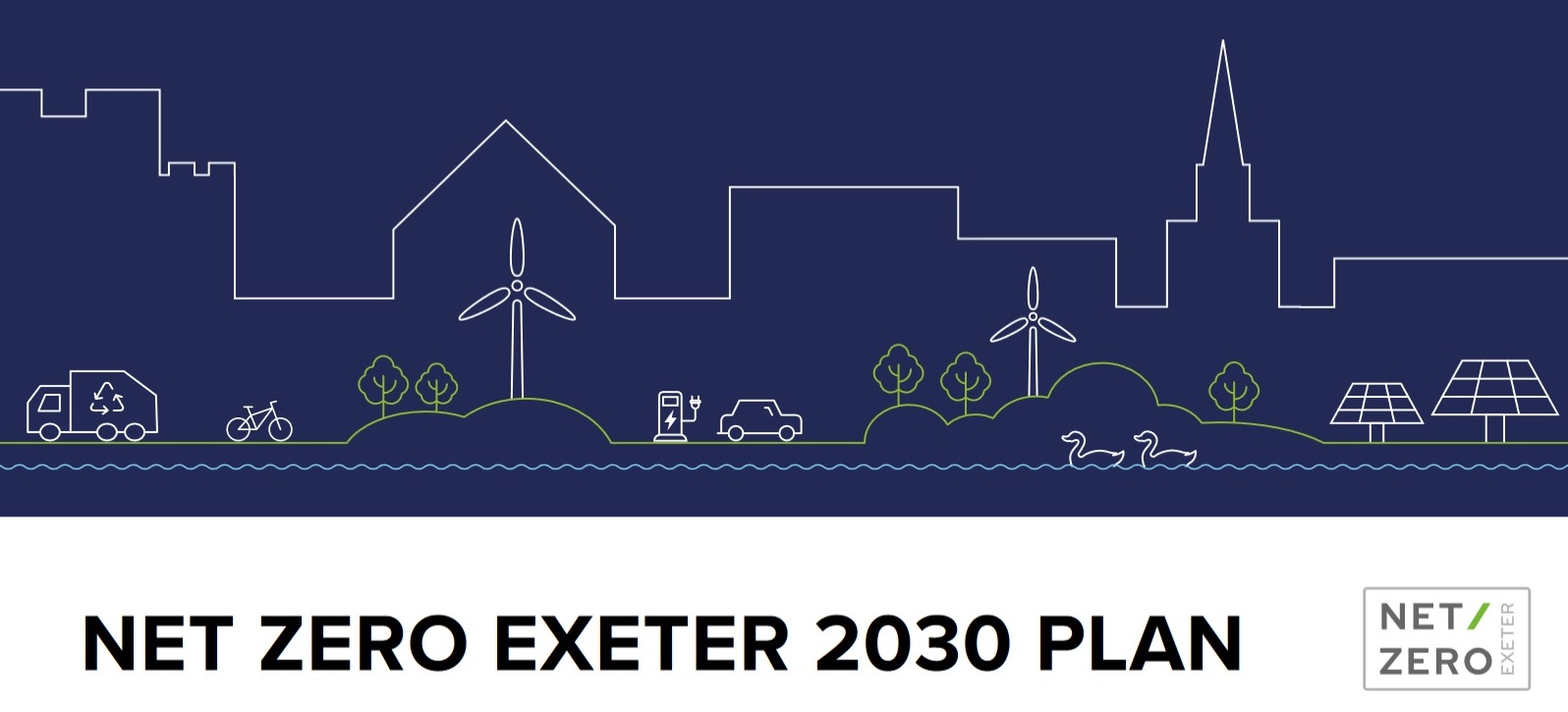A carbon reduction plan released by Exeter City Futures has been adopted for action by Exeter City Council’s Place Board. It was released on the 7th April 2020 following the city’s declaration of a climate emergency on the 23rd July 2019 and proposes a route for the city to meet carbon neutrality by 2030.
The plan details measures including encouraging institutions (including schools) to retrofit buildings for energy efficiency, upgrading the city’s planning policies (though it’s unclear why the first is costless and the second costs over £50 million), renewable generation, cutting energy demand, providing active and low carbon public travel options to reduce car dominance, programmes promoting more sustainable and healthy food, and using the procurement budget to encourage low carbon supply chains. These are admirable goals and Exeter City Council deserves credit for embracing them. It is in a difficult position for implementation, facing a deficit of £11 million this year, largely due to the impact of the corona virus pandemic on revenues.
Yet, an ongoing and extensive investigation undertaken by Martin Redfern from the Exeter Observer, partnered with youth climate activist Sophie Sleeman from Fridays for Future, argue the plan is lacking in transparency and legitimacy. Their first report (to be followed by others) is well worth a read.

Sources: Exeter City Futures, University of Exeter & DEFRA. Published by Exeter Observer under a creative commons license (https://creativecommons.org/licenses/by-nc-sa/4.0/)
The article highlights the omission of several factors that undoubtedly contribute to Exeter’s CO2e emissions levels. These include a failure to capture an accurate measurement of emissions resulting from supply chains and city imports.
There is no accounting for aviation, with Exeter Airport’s carbon emissions being entirely missing from the report. It also fails to take into account carbon emissions resulting from ongoing and planned infrastructural development projects, which according to the plan are essential to meeting the cities carbon neutrality goals by 2030. Equally, there is a clear focus on individual behavioural changes and lack of consideration for the large-scale transformative approaches required to meet Net Zero carbon emission goals. Taking all factors into account, the authors find there is an approximate total of 1.1 million tonnes of CO2e emissions unaccounted for in the Exeter City Futures plan.
This means that the cost for Exeter of offsetting remaining emissions would be much higher than projected.

Sources: Exeter City Futures, University of Exeter, DEFRA, WEF & Centre for Sustainable Energy, published by Exeter Observer under creative commons license https://creativecommons.org/licenses/by-nc-sa/4.0/
This highlights not only an urgent need for a baseline audit in order to accurately measure the city’s emissions levels, inclusive of imports, aviation and construction, but also the need to scrutinise the “performative-ness” and arguably techno-optimist policy planning and decision making witnessed in the carbon plan and Exeter City Council’s adoption of it in equal measure.
The report published by the Exeter Observer prompts the question whether there is still too great a focus on taking a business as usual approach. It has been 15 months since Exeter declared a climate emergency, and it seems time spent has focussed heavily on the production of policy reports and rather little on action-oriented approaches.
What is more, in all of this, there has been little consideration of the ways communities might be able to take part to deliver the plan. Might there be more positive projections for community involvement? After all, many of the changes required for Net Zero involve individuals and households changing their behaviour, travelling and using energy differently at home. Community organisations are often trusted intermediaries who can organise efforts to help these changes to happen.
See more in-depth discussion and analysis from the Exeter Observer.
Natalia Hayes and Gill Westcott

